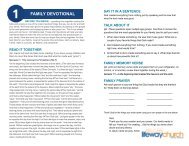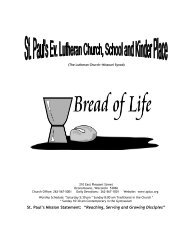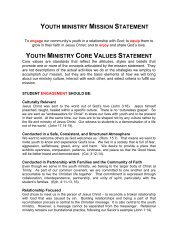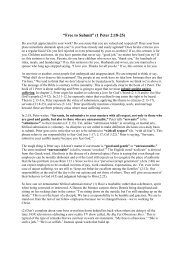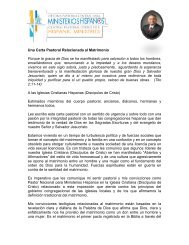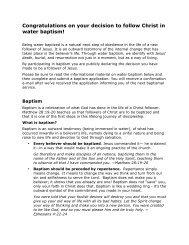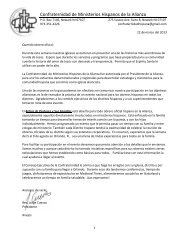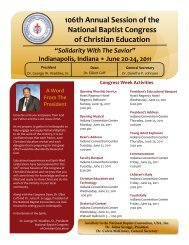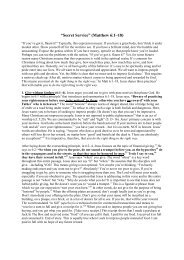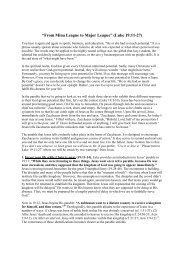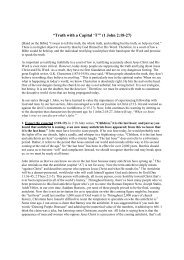A Proposal to Reduce Unnecessary Divorce - Razorplanet
A Proposal to Reduce Unnecessary Divorce - Razorplanet
A Proposal to Reduce Unnecessary Divorce - Razorplanet
Create successful ePaper yourself
Turn your PDF publications into a flip-book with our unique Google optimized e-Paper software.
38<br />
Marriage education programs have been used for decades in the U.S. and have<br />
a demonstrated track record in helping <strong>to</strong> improve and save marriages. Marriage<br />
education aims <strong>to</strong> equip individuals and couples with the knowledge,<br />
attitudes, and skills necessary <strong>to</strong> succeed in marriage. Most marriage education<br />
occurs in classroom settings with trained instruc<strong>to</strong>rs who are professionals or<br />
qualified lay volunteers. A key tenet in marriage education is that marital success<br />
depends neither on finding the “perfect match” nor on the notion that love<br />
conquers all, but on the belief that knowledge and competencies can be taught<br />
and learned. Knowledge includes an understanding of the benefits and advantages<br />
of marriage, the reasons <strong>to</strong> work hard for one’s marriage, and a roadmap<br />
of the predictable ups and downs along the way. Competencies include developing<br />
communication and conflict management skills and finding positive ways<br />
<strong>to</strong> connect in everyday life. 53<br />
Several of the more well-known marriage education programs have been<br />
evaluated and proved effective. A prominent evidence-based marriage education<br />
program called PREP has recently been found <strong>to</strong> lower divorce rates in a<br />
study of military couples. 54 In the faith community sec<strong>to</strong>r, the Retrouvaille program,<br />
which consists of a retreat weekend and follow-up group meetings for<br />
distressed couples, has a long track record of res<strong>to</strong>ring hope <strong>to</strong> and rebuilding<br />
troubled marriages. A weekly drop-in group program called The Third Option,<br />
which has secular and faith-based versions, combines training in communication<br />
skills, group support, and men<strong>to</strong>ring by seasoned married couples. 55 Educational<br />
approaches such as these are skills-oriented and require less disclosure<br />
of personal problems than traditional marriage counseling, and thus are more<br />
acceptable <strong>to</strong> couples who are reluctant <strong>to</strong> go <strong>to</strong> therapy. Group programs also<br />
typically cost less than individual counseling sessions. Some, like Retrouvaille<br />
and The Third Option, ask only for good will offerings. 56<br />
State legislatures can promote these preventive educational programs for couples<br />
at risk for divorce by offering an incentive via a modest tax rebate <strong>to</strong> defray<br />
some of the costs. 57 As an example, couples would be eligible for a $100 tax<br />
rebate. Given the high costs of divorce <strong>to</strong> states, including court costs, increased<br />
welfare payments, educational costs, and juvenile justice system costs for children<br />
and youth, a modest decrease of tax revenue that prevents even a small<br />
percentage of divorces would be in the public interest. 58 States like Minnesota,<br />
which currently has a financial incentive for obtaining premarital education,<br />
have seen success in increasing the rate of couples preparing for marriage. 59



